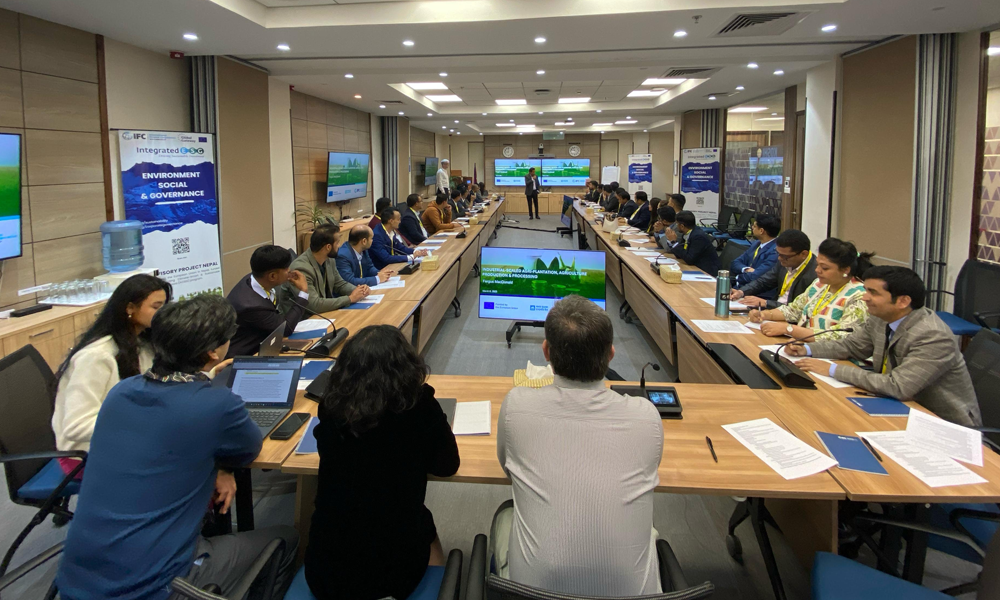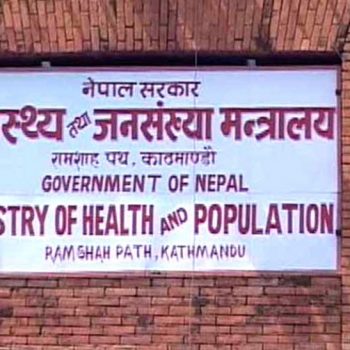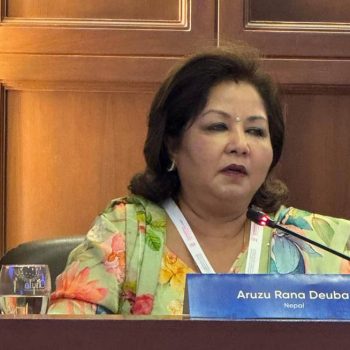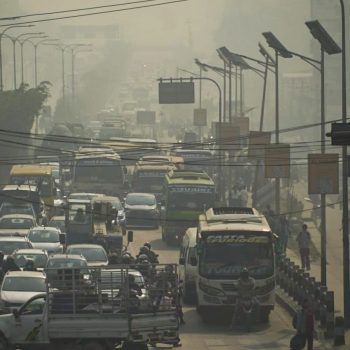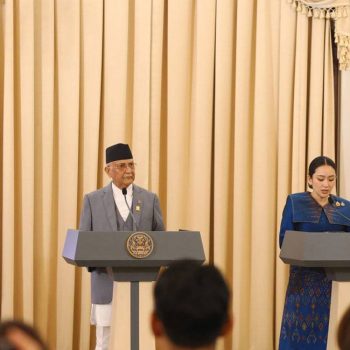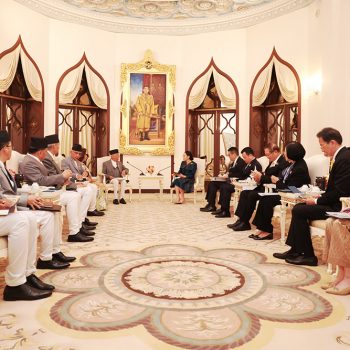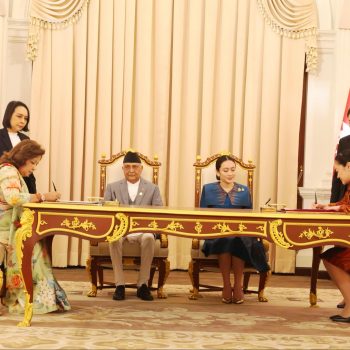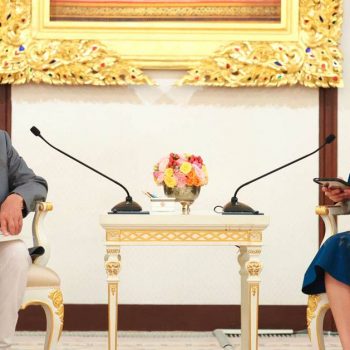Challenges to new FinMin: From budget implementation to economic recovery
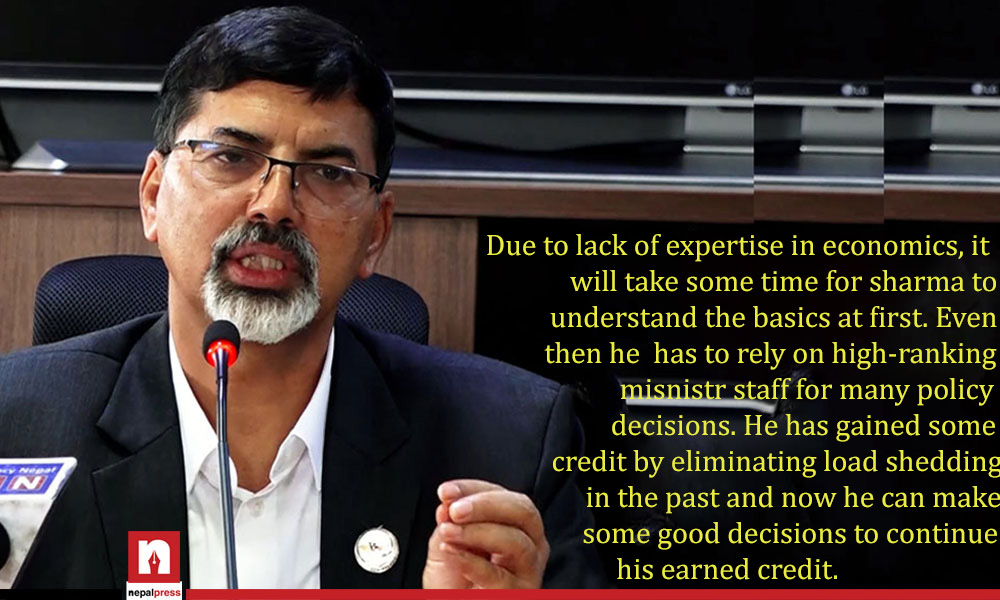
KATHMANDU : CPN (Maoist Centre) leader Janardan Sharma has been entrusted with the responsibility of Finance Ministry in the newly formed Sher Bahadur Deuba-led government. Sharma is not an economist like the previous one.
Sharma, who was appointed as the Finance Minister in a five-party coalition government, has serious challenges and opportunities to carry out good works. There is a practice in Nepal that the the government-led party always takes the Ministry of Finance, but this time the Ministry has been handed over to a different party which has become a hot issue and a matter of discussion among the political parties.
As the current government has decided not to take ownership of the budget presented by the erstwhile KP-Sharma Oli-led government, there is a challenge for Finance Minister Sharma to implement the budget.
The main challenges for minister Sharma, who was accused of embezzling cantonment money in the past when he was serving as Home Minister and Minister for Peace and Reconstruction, is to reduce trade deficit, foreign debt and implement the budget.
It will take some time for Minister Sharma to understand the essence of the Ministry due to lack of experience. He has to rely on high-ranking staffers to make decisions. He has gained some credit by eliminating load shedding in the past and now he has to make some more good decisions to continue his earned credit.
Confusion in amending current budget or making a new one
Will the budget brought by former Finance Minister Bishnu Paudel be amended and implemented or will a new budget be brought? There is confusion on the same. He is facing the challenges to bring the budget with an integrated program on behalf of the coalition government, which has opposed the previous government’s distribution-oriented budget, even if amendments or new budgets are made.
Sharma does not have the courage to slash the old age allowance provided through the budget, the concession given to the industrialists for the upliftment of the economy, the concession given in the demand fee of electricity and the concession given in the sector including tax.
It is almost certain that Sharma will continue such concessional programs as the government’s popularity is likely to decline if it moves forward ignoring the general public, employees and businessmen. Finance Minister Sharma does not have the capacity to reduce the discounts and facilities given to entrepreneurs for any program that will increase production and create employment.
Similarly, experts say that there is no ‘fiscal space’ in the new budget to be brought by the government as it cannot reduce the obligation to bear for current expenditure and ongoing projects.
Economist Dilliraj Khanal says that even though the government has the basis to bring a new budget, there is no room for major changes in the budget’s policies and programs. “It simply came to our notice that this government is trying to make a new budget. But the ‘fiscal space’ to change the budget is narrow”, he said.
Instead, the finance minister is in a position to increase the budget for relief and rehabilitation, says Dr.Khanal. He is of the view that it will be difficult to bring the current ceiling of Rs.1.647 trillion rupees when the government presents a new budget.
Challenges to control and manage COVID
The government faces the challenge of reviving the economy, which has been devastated by the corona, and the responsibility to control and manage the corona.
The biggest challenge right now is to buy COVID vaccines and other health products. Former Vice-Chairman of the National Planning Commission, Prof. Dr. Govinda Pokharel, said that the current government should focus on vaccination for COVID and saving the lives of the people. “The main priority of the current finance minister is to save the lives of the people by buying vaccines against COVID and reviving the economy affected by COVID-19,” said Pokharel.
Prime Minister Sher Bahadur Deuba has announced that all Nepalis will be vaccinated by April this year, while Finance Minister Sharma has signed an agreement to disburse Rs.5 billion through the previous fiscal year’s budget. But it is not easy to vaccinate all Nepalese till April this year.
With the continuous arrival of new variants of the COVID-19 and the huge demand for its vaccines in the world, it is almost impossible to buy COVID-19 vaccines from abroad and apply them to all Nepalese citizens.
Industrial business difficult to rise, Challenges to unemployment
Many industries have not been able to come into operation due to COVID-19 lately. Millions of Nepalese have lost their jobs due to non-operation of industries and businesses. Poverty has increased due to loss of employment. People’s ability to spend has declined.
Boosting the weakened industry due to COVID, creating employment and reducing poverty is a big challenge for the new Finance Minister, says Economist and Prof. Dr. Biswambhar Pyakurel. ‘According to reports from various International bodies, Nepal’s poverty rate is around 36 percent. Reducing this amount is the main challenge for the government. ‘
He said that increasing foreign and domestic debt was also a big challenge for the finance minister. “Rising foreign and domestic debt management seems to be an ultimate test for the government,” he said. “In the last three and a half years, the Oli government’s debt has reached 40 percent.” On the one hand, the pandemic of COVID-19, on the other hand, the burden of debt, therefore the current finance minister is not in a comfortable stage.
Obligation to satisfy everyone
Pyakurel states that the pressure on the current finance minister to satisfy everyone has increased as the Supreme Court has interpreted this government to be formed by the independent vote of each parliamentarian as per Article 5 of the constitution. He is of the view that there will be positive signs in the economy if the finance minister do not work to the satisfy the parliamentarians and move forward by tearing the interests of the industrialists.
The challenge of reducing trade deficits
The trade deficit has been rising sharply recently and the balance of payments has been declining. According to the latest report of Nepal Rastra Bank, the balance of payments is in deficit of Rs.15.15 billion while inflation has increased by 4.19 percent.
Unemployment is rising sharply due to the inability to create internal employment. Although remittances have increased by about 12 percent, the number of people seeking labor permits to go for foreign employment has decreased. Since COVID vaccination has been made mandatory for international travel, foreign employment is certain to be affected if the government fails to vaccinate the public.
According to the latest report of the Central Bank of Nepal, Foreign exchange reserves have also started declining. Economists says the finance minister needs to pay close attention to this as it could add problem in importing products to the government.
Improvement in budget expenditure
The government has also failed to spend the allocated budget in the Fiscal Year 2077/78. 70 percent of the budget allocated in that fiscal year has not been spent yet.
Similarly, the government has not been able to collect the revenue as provided in the budget. The termination of the situation of allocating budget but not being able to spend has also been added to the responsibility of the new finance minister.
Although it is said that the economic growth will be 4.01 percent in the fiscal year 2077/78, it seems that it is difficult to meet the target due to the second wave of COVID-19.
Similarly, there is a challenge for the Finance Minister to stop the monetary policy being brought by Nepal Rastra Bank and adjust it according to its financial policy. Failure to strike a balance between monetary policy and the government’s fiscal policy risks financial chaos.




